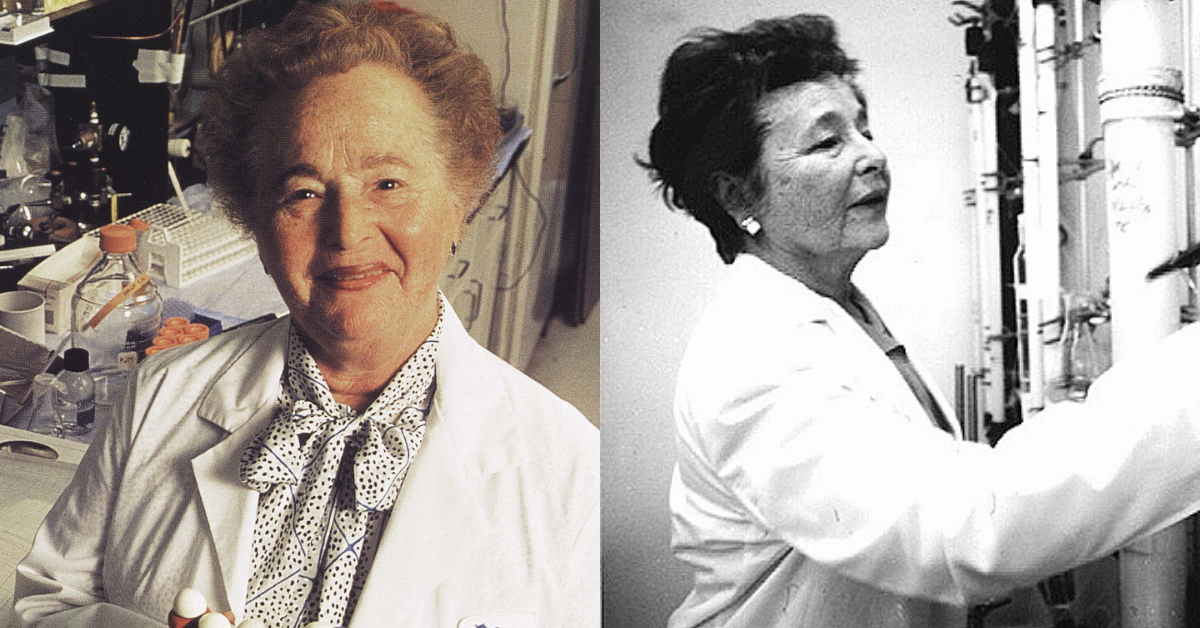Thanks to her, we can cure herpes: Who is Gertrude Elion?
American pharmacologist and biochemist Gertrude B. Elion is famous for scientifically discovering drugs to treat leukemia and herpes, and drugs to prevent kidney transplant rejection.

This discovery won the Nobel Prize in Physiology or Medicine in 1988, which she shared with her longtime boss and Burroughs-Wellcome collaborator, George H Hitchings, as well as Sir James W Black.
Gertrude "Trudy" Belle Elion (January 23, 1918 – February 21, 1999) was an American biochemist and pharmacologist, who shared the 1988 Nobel Prize in Physiology or Medicine with George H. Hitchings and Sir James Black for their use of innovative methods of rational drug design for the development of new drugs.
After receiving the Nobel Prize, she said:
People often ask me, was the Nobel Prize you've been aiming for all your life? And I say it's going to be crazy. Nobody aims for the Nobel Prize because if you didn't get it, your whole life would be wasted. Our goal was to heal people, and the satisfaction it brings is far greater than any reward you can get.
She holds 45 patents, 23 honorary degrees, and a long list of other honors. She was not married.
Early Life, Education, and Career
Gertrude Elion was born on January 23, 1918, in New York to a family of immigrants from Eastern Europe. She and her younger brother grew up in the Bronx, New York, where they enjoyed playing in the big parks and visiting the Bronx Zoo.
She graduated from Hunter College at the City University of New York in 1937 with a bachelor's degree in chemistry. During this time she also planned to become a cancer researcher, but for several years she worked as a laboratory assistant, and food analyst (tested pickles and strawberries). for quality at the Quaker Maid Company) and a high school teacher at night while studying for a master's degree. She completed her master's degree in chemistry from New York University in 1941.
When World War II broke out, there was an urgent need for women in scientific laboratories, so she took a position first in instrumentation in an industrial laboratory and later as assistant to George H. Hitchings at the Burroughs-Wellcome pharmaceutical company (now GlaxoSmithKline). She never received an official doctorate, but later received an honorary doctorate from the Polytechnic University of New York in 1989 and an honorary SD from Harvard University in 1998.
Working with George Hitchings, Elion helped develop the first drugs to combat leukemia, herpes, and AIDS and created new research methods to produce drugs that could target specific pathogens. The drugs she developed include acyclovir (for herpes), allopurinol (for gout), azathioprine (for limiting rejection in organ transplants), purinetol (for leukemia), pyrimethamine (for malaria), and trimethoprim (for meningitis and bacterial infections).
He served as head of the company's Experimental Therapy Department in 1967 and officially retired in 1983 she. Despite her retirement, Elion continued to work almost full-time in the laboratory, overseeing the initial adaptation of azidothymidine (AZT). A drug used to treat AIDS.
Death
Gertrude Elion died on February 21, 1999, in North Carolina. She has always been admired by many students and colleagues for her intelligence and dedication to science.
